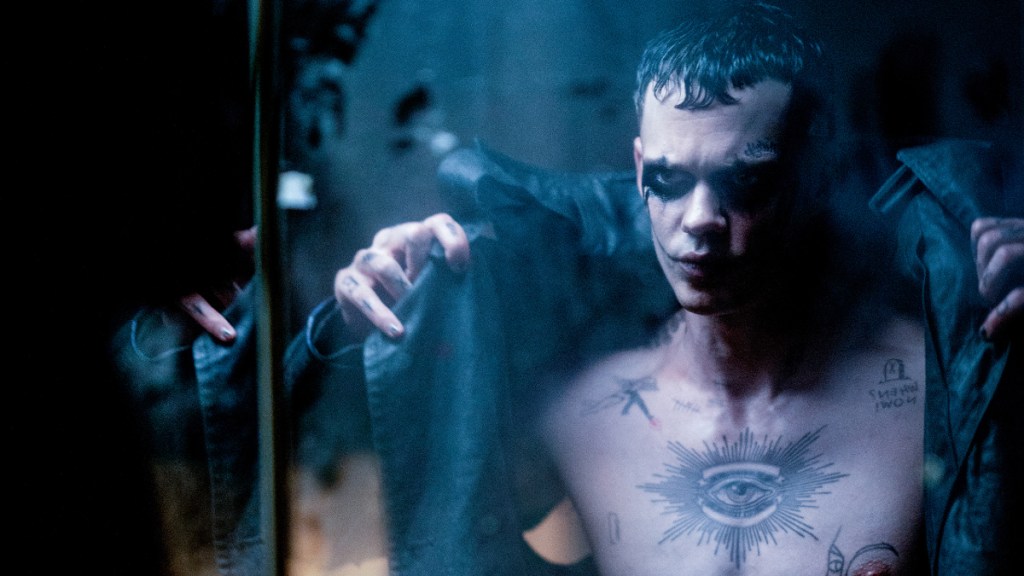James O’Barr’s original The Crow comic miniseries was, as most comics fans know by now, about love, loss, and bereavement. So it’s probably a bad sign if, thirty minutes into the latest cinematic adaptation, you’re rooting for the two main characters to hurry up and die already. In the re-adaptation by director Rupert Sanders (Snow White and the Huntsman) the most significant loss felt is that of 111 minutes potentially better spent somewhere else.
The 1994 film of The Crow is the ultimate in ’90s goth movies. So much so that it even came with a tragedy of its own, when star Brandon Lee was accidentally shot and killed on set by a mistakenly loaded gun. It was his defining role, and remains so by default, but the movie’s eternal-night aesthetic — and its grimdark soundtrack by established hitmakers (The Cure), hot new stars (Nine Inch Nails, Stone Temple Pilots) and student radio cult acts (Medicine, Rollins Band) — hit Gen-X right in the nihilistic feels. It’s been a merchandise-mover ever since, yet unable to follow up with another hit movie.
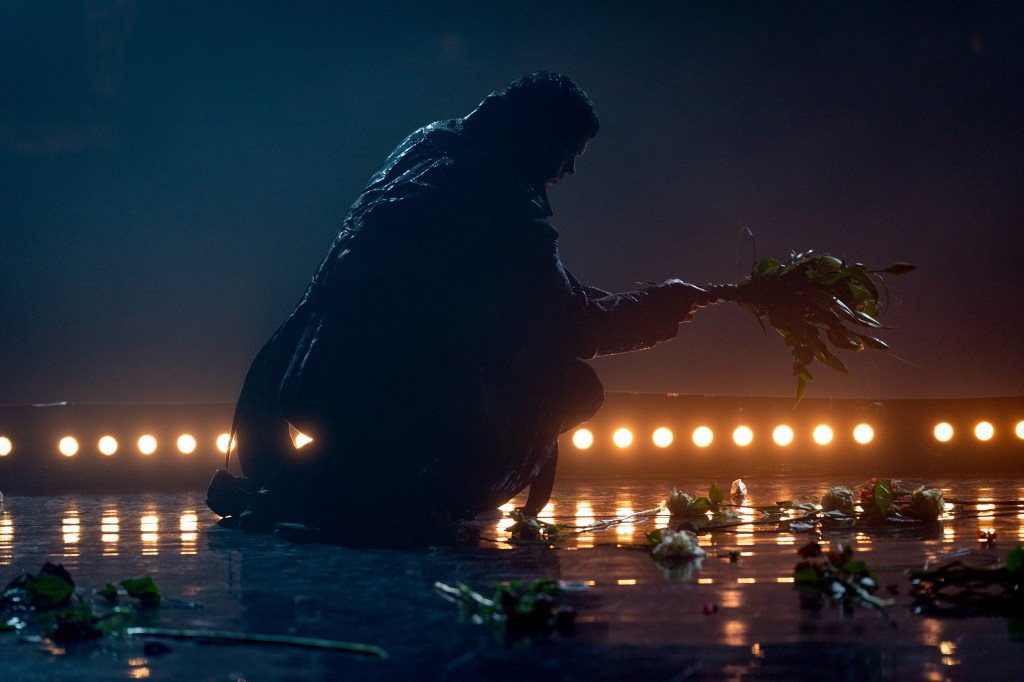
In theory, The Crow is an extremely malleable franchise — its heroes are one-and-done walking corpses back for a final revenge quest, and literally anybody can be a Crow. This worked in the comics, but not onscreen, as the semi-sequels City of Angels and Wicked Prayer have never gotten much love. Perhaps that’s why the new one, which has been in the works for almost two decades now with various creative teams and stars attached, attempts to go back to the original character Eric Draven, albeit by being far less faithful to the source material.
It Can’t Reign All the Time
To be fair, a more direct remake of the comic and movie was already tried, with the Mark Dacascos-starring TV series The Crow: Stairway to Heaven. You really, really don’t want to watch it, however much you might like Dacascos. Seriously.
Rather than dropping us into a black-draped industrial coffin of a world, the new Crow begins in broad daylight, on a farm, as little-boy Eric learns about losing loved ones when he…finds a white horse caught in barbed wire. Trying to free it cuts his hands, which apparently led to a downward spiral that has landed him in rehab. Or perhaps it’s just a dream. Whatevs.
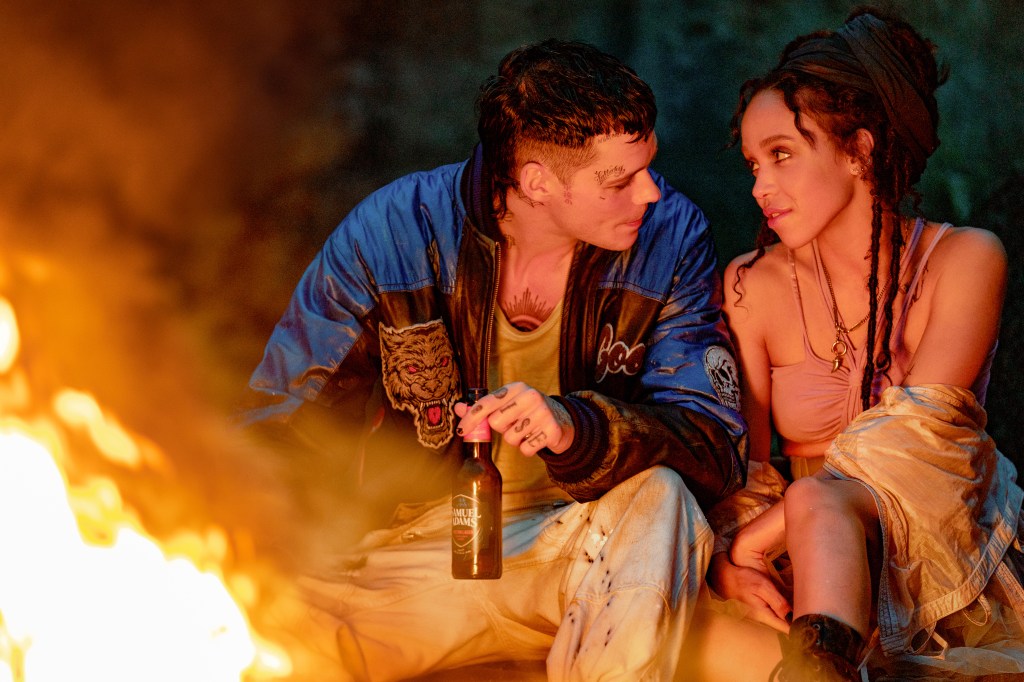
In rehab, adult Eric (Bill Skarsgard) meets Shelly (FKA Twigs), who is there after being caught with drugs while fleeing potential assassins. They stare at each other, She likes his poetry and drawings. They break out, have sex, do more drugs and get drunk, as every addiction counselor would have told them not to do. An inevitable finger-wagging from the insufferable Dr. Drew Pinsky will actually be deserved this time.
I Said No, No, No
In the original comics and film, the tragedy of Eric and Shelly is simply that they’re random victims of degenerate criminals. Portrayed here as muscular, strung out junkie convicts on the run, they seem like the kind of people whom anyone in their right mind might shoot at if they were caught trespassing. Once we learn more about Shelly’s past, that becomes even more true, as she’s deeply involved with a Faustian immortal soul vampire named Roeg (Danny Huston), who makes a point of corrupting innocents and sending them to Hell in his place. A lot of exposition seems to have been left on the cutting room floor that might better explain their dynamic, or why Roeg is obsessed with classical music to the point of being an overly conspicuous patron.
Much like the recent Time Bandits TV series offered its protagonist the ability to undo the cruelest death scene in the movie, The Crow now offers Eric a chance to reverse his and Shelly’s eventual murders, which is about as fundamental a betrayal of the source material as it gets. In a purgatory that looks like infinite empty railroad bridges, Eric is guided by an older man who may or may not be a previous Crow; this feels more like a lift from the early issues of Spawn, which was at least partly riffing on The Crow to begin with.
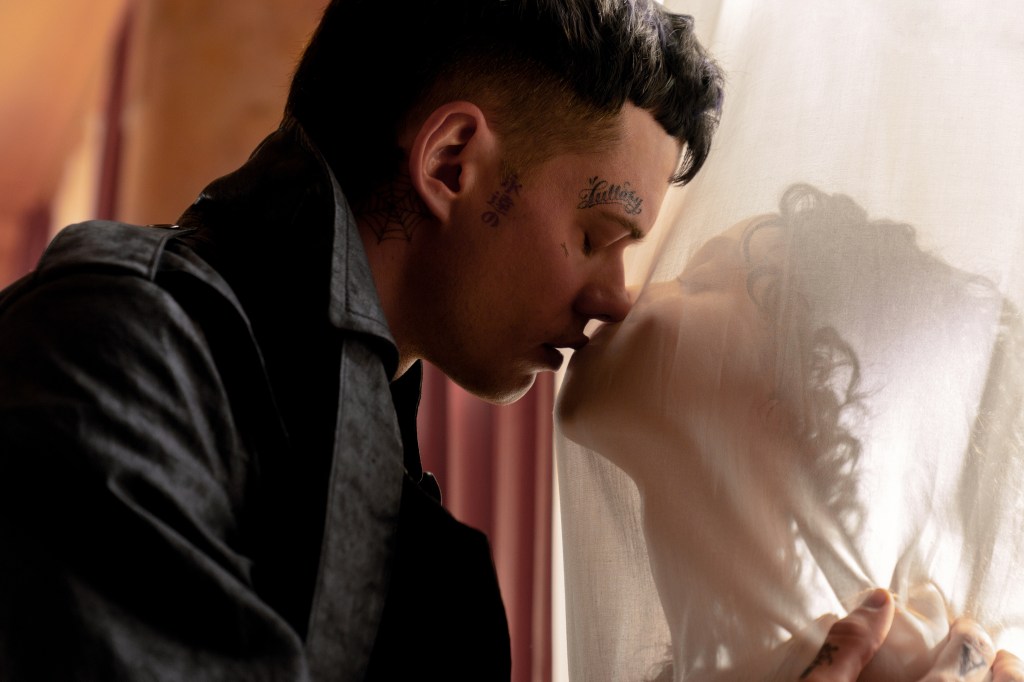
Wick-ed Prayer
Sanders seems to have borrowed as much from the John Wick aesthetic as his predecessor Alex Proyas did from Tim Burton’s Batman, but there’s less of a point to it. “R-rated Batman” was pushing beyond the limits of what had been done; “R-rated John Wick” is just John Wick. To Sanders’ credit, the action moments are the highlights of the movie, with Eric initially more or less incompetent at fighting, but just very good at not dying, as his wounds cause him maximum pain despite their ability to heal. Like a video game character, he can sustain enough damage to be sent back to purgatory and start again; by the time he’s fully leveled up for an opera house massacre, the gore is as excessive and hilariously cathartic as in any good slasher.
Sanders also knows when to deliver a needle drop, though the soundtrack is hardly as memorable this go-around. Joy Division, Enya, and Gary Numan bring the retro vibes, with bands like Traitrs and Landr bringing the new.
As for the actual crow that brought back Eric’s soul, it, barely interacts with him, just flying vaguely in the direction he’s supposed to go. There’s no camaraderie there, which feels particularly odd for a guy whose first murdered “loved one” was apparently a horse. Then again, the crow looks to have been added in post, so it’s hard to blame Skarsgard for not noticing it.
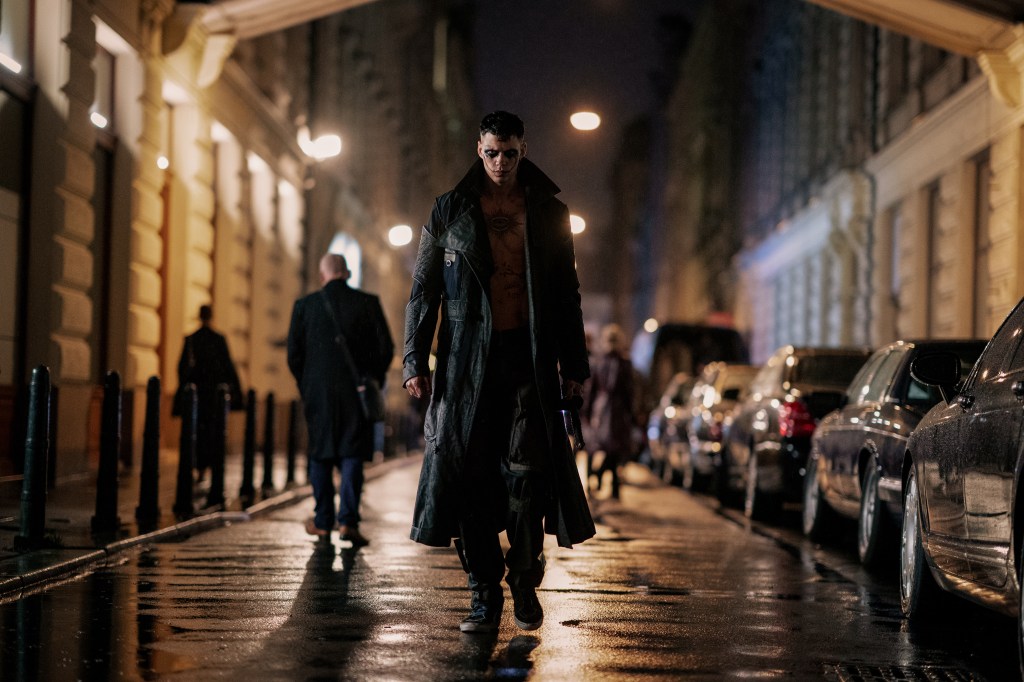
Burn
There have been so many swings on this project, with everyone from Mark Wahlberg to Tom Hiddleston and Jason Momoa attached, that it’s easy to suspect a “too many cooks” approach ruined what could have been a fruitful franchise restarter. In comics, The Crow: Flesh and Blood, which featured a resurrected indigenous federal officer who was pregnant at the time of her death made for one of many stellar sequels; a script based on that and written for Amber Midthunder could have been a license to print money. Instead, we get Eric Draven in name only. Skarsgard does his best with this poorly fleshed-out junkie poet, but everything else betrays him.
And it’s not like we don’t know the answer to this, but why — in a universe where it’s proven that Satan and Hell are actually real — does nobody ever mention Jesus? Regardless of one’s faith or lack thereof, it only makes sense that when a mythological demon turns out to verifiably exist, one might consider calling on his traditional foe for help.
Sanders’ Ghost in the Shell remake was underrated, unfairly tarred as whitewashing when its story was pointedly a critique of same, but that’s not the case here. This Crow will be overrated if anyone remembers it at all. After all these years of talk, it might have been bound to disappoint, but even in a world where Brandon Lee’s original never existed, it still would have done so.
Grade: 1.5/5
The Crow opens in theaters on Friday, August 23.
